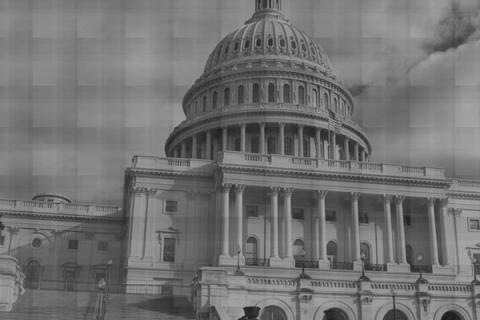According to the old adage, often mis-attributed to the likes of Albert Einstein or Benjamin Franklin, the definition of insanity is doing the same thing over and over and expecting different results. Is there a better way to describe any continuing support for the Republican-Democratic, two-party political charade?
According to two recent polls from Gallup Politics, just 22% of Americans are satisfied with the way things are going in the country and only 10% approve of the way the Congress is handling its job, a new record low. Among Independents, the latter number is even lower. A mere 8% of self-described Independents are satisfied with Democratic and Republican leadership in the House and Senate.
Clearly, it is not because they have a significant level of support among the electorate that representatives of the Republican and Democratic parties continue to monopolize public office at all levels of government in the United States. Indeed, there are more Americans who identify themselves as Independents than there are who willingly confess that they still affiliate with one of the two legacy parties. A capital 'R' or 'D' appended to one's name is slowly but surely becoming a badge of shame, if it isn't one already.
Even among those who express some level of support for the Republican or Democratic parties, a great many admit that they do not in fact particularly like that party's candidates, and state that they are rather simply voting against the candidates from the other major party. Unfortunately, there does not appear to be much if any scientific data gauging the prevalence of this reactive mentality, but it seems to be fairly common across the political spectrum. It is likely safe to conclude, however, that without the pseudo-argument in favor of the lesser evil, which is beloved by Republicans and Democrats alike, levels of support for the Democratic and Republican parties would be even lower. As Nick Gillespie and Matt Welch wrote at Reason last summer:
“Every election cycle (and we are always in an election cycle), we are urged to remember that deep down inside we really despise the opposing gang of crooks.”
The result of this scenario is a lack of any substantive choice in our electoral system even when there is more than one candidate on the ballot. It is no wonder, then, that in so many elections, up to and including those for the presidency, there are more eligible voters who opt not vote than there are who vote for the Republican or Democrat. But it is ironic that if the majority of Americans who consistently express a desire for real alternatives to the Democrats and Republicans were to cast their ballots for a third party or independent candidate, that person would win in a landslide.
Of course, the stock response to any suggestion that one might support a third party or independent candidate for elected office is that you are simply throwing your vote away. But aren't things now the other way around? Perhaps the only wasted vote is a vote for the current political status quo, for the deadlock and dead end represented by the Republican and Democratic parties.
With the number of self-declared Independents steadily rising across the country, and even outpacing the Democrats and Republicans themselves, it is time to begin expressing that independence at the ballot box. There will be no lack of choice in this year's elections, though the partisans of the major parties and their mouthpieces in the media would rather we ignore this simple fact. Between Independents, Greens, and Libertarians alone there will be hundreds if not thousands of alternatives to the Democrats and Republicans up for election this November, from the presidency to the proverbial dog catcher.
In 2010, there were more third party candidates for Congress on the ballot across the country than at any other time since the 1930's, according to an analysis out of the University of Minnesota. Given the public's record levels of discontent with the two-party state, there will likely be even more choice this time around.

